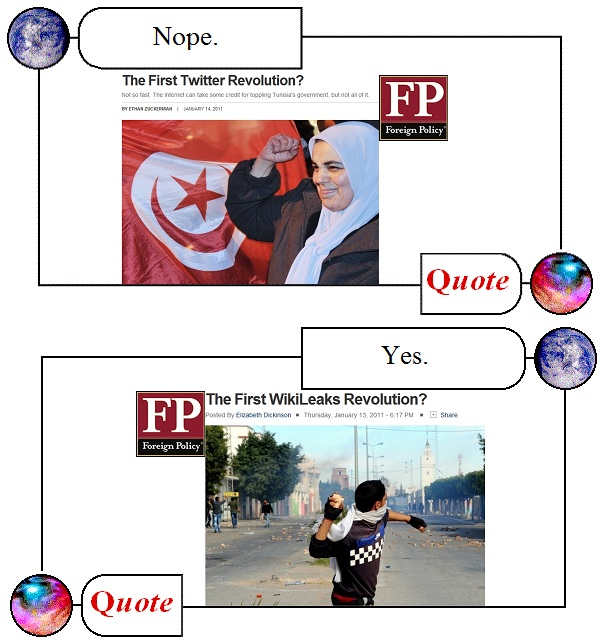[ cross-posted from Zenpundit ]
Foreign Policy has had two articles up in the last couple of days with somewhat similar headlines:
The site which specifically tracks WikiLeaks on Tunisia is TuniLeaks:
My rosette for best tweet of the week goes to Galrahn and all those who RT’d him:
What a world, eh?



Well, Abu Aardvark [Marc Lynch] on Foreign Policy sees things in pretty much the opposite way to the one I suggest in my DoubleQuote above. He writes:
And Arabic media is his turf.
For his further nuance, take a look:
http://mideast.foreignpolicy.com/posts/2011/01/15/tunisia_and_the_new_arab_media_space
See also Zeynep Tufekci, “Tunisia, Twitter, Aristotle, Social Media and Final and Efficient Causes”:
http://technosociology.org/?p=263
This, from Youssef Gaigi, Tunisian blogger via Talk Morocco:
My guess, totally uninformed, just a hunch — those into blogging, tweeting, etc, being in contact with the like-minded, might think WL, Twitter, FB or whatever had a major impact, while those not particularly involved, similarly knowing mostly their own kind, might think it was minimal: interesting set-up for some sociologist / social network analyst to look at.
Paging Valdis Krebs!